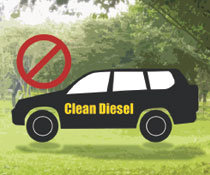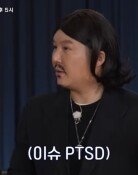The end of ‘clean diesel’ policy
The end of ‘clean diesel’ policy
Posted November. 10, 2018 07:28,
Updated November. 10, 2018 07:28

Rudolf Diesel was born in France to a German immigrant family. A socialist, he started research in the 1890s to develop an engine that small merchants can afford to use. The steam engine, which was widely used at the time, only converted 10 percent of heat into energy, and was bulky and expensive. Diesel developed a diesel engine that provided an energy conversion ratio of over 25 percent by using diesel fuel. The English word for "diesel" fuel also derived from his last name. Unlike his wish, however, the engine was mounted on military vehicles and submarines. It was also used in the Russian military tank T34, which was mobilized on the frontline to protect North Korean troops during the Korean War.
Europeans, who were attracted to the engine for its high gas mileage and strong power, started to use diesel-powered passenger cars from the 1970s despite disgusting smell and noise from the engine. Banking on the fact the diesel engine emits 20 to 30 percent less carbon dioxide than the gasoline engine, German automakers promoted their diesel engines by calling them "clean diesel." In a Volkswagen advertisement, engineers transform into angels when its diesel vehicle runs every 100,000 miles, to give the impression that owners of this vehicle is helping save the Earth.
The former Lee Myung-bak administration, which pursued "low carbon, green growth" policy, classified diesel vehicles as eco-friendly vehicles and granted tax benefits. Due to the character of the engine, however, diesel vehicles emit nitrogen oxide, which gasoline-powered vehicles emit very little. European diesel vehicles were said to have addressed this pollutant by adopting sophisticated after treatment systems, but the clean diesel effectively turned into "dirty diesel" when Volkswagen was caught in 2015 by the U.S. authority for emission violations. Nitrogen oxide is considered a main cause for high fine dust and ultrafine dust levels in Korea. For this reason, the South Korean Environment Ministry declared on Thursday that it will discard "clean diesel" policy and oust diesel vehicles in phases.
A campaign to kick out diesel vehicles has also started in Europe. German automakers, which already earned astronomical amounts of money, are left unscathed. But Hyundai Motor, which introduced diesel models in 2015 only belatedly, started a process to expel the diesel engine although it has yet to earn return on investment. Korean refineries also increased diesel production facilities, only to suffer losses. Then, can we say electric vehicles and hydrogen fuel cell vehicles have become the mainstream of eco-friendly vehicles? The questions of how used electric car batteries will be disposed, and will electricity necessary to produce hydrogen be generated in an eco-friendly way remain unanswered just yet.
Se-Jin Jung mint4a@donga.com






![“잠만 자면 입이 바싹바싹”…잠들기 전에 이것 체크해야 [알쓸톡]](https://dimg.donga.com/c/138/175/90/1/wps/NEWS/IMAGE/2026/02/23/133404748.3.jpg)
